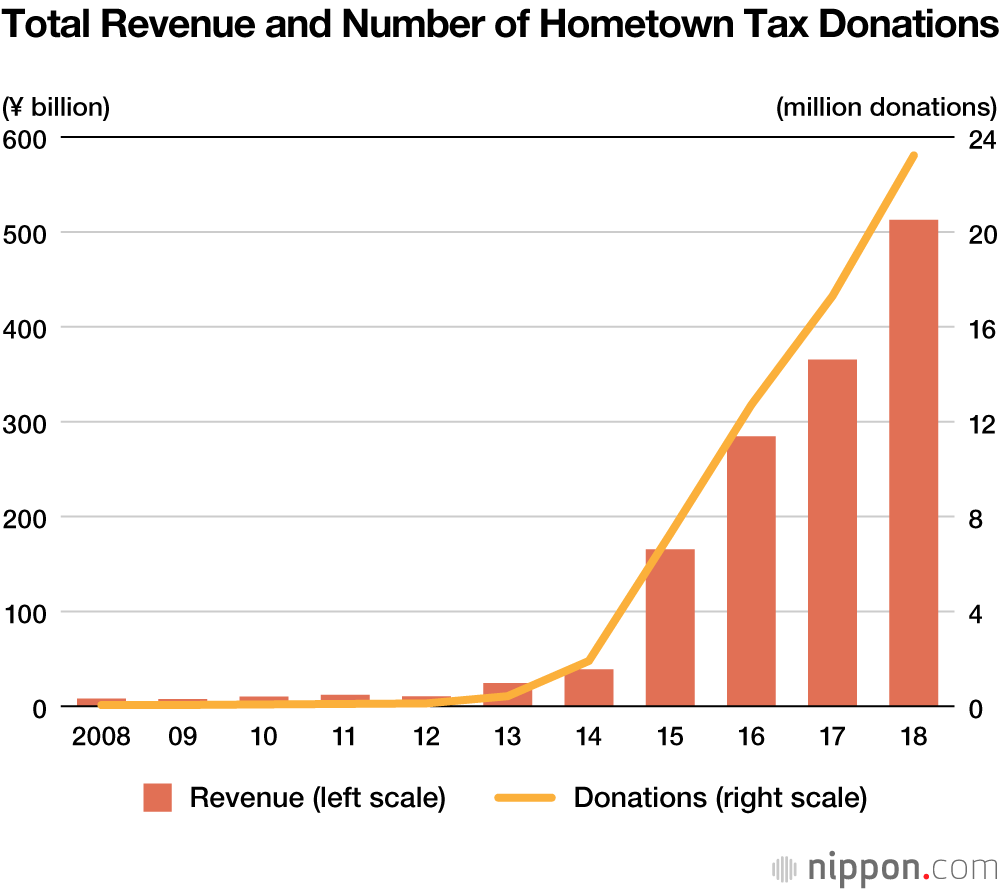
Expanding Hometown Tax Donation Program Shows New Value in Times of Disaster
Society- English
- 日本語
- 简体字
- 繁體字
- Français
- Español
- العربية
- Русский
Under the furusato nōzei hometown tax system, Japanese taxpayers can choose to make donations to their hometowns or other municipalities they want to support and receive reciprocal exemptions in the municipalities where they live. Total donations rose by 28% in 2017 to ¥365.3 billion, a record high for the fifth straight year.
The idea for a furusato nōzei system was originally prompted when an entrepreneur wrote in a newspaper piece, “I’m working and paying tax in Tokyo, but I’d like to give something back to the town where I was raised.” The system was implemented in 2008.
The total donation amount minus ¥2,000 is deducted from each donor’s income and residence tax bill, and then many of the municipalities that receive payments send gifts of local goods in return. For this reason, it is more a chance to enjoy a spectacular bargain than an increase in the tax burden, as for ¥2,000 people can receive items that are worth tens of thousands of yen. Municipalities that offer branded beef and high-quality seafood products like crab and tuna are more likely to receive many donations.
However, the appeal of this system is not limited to self-interest. In times of disaster, a large number of donations can be collected through the system, without the need for a reciprocal gift. The furusato nōzei portal website Furusato Choice has established a special page to support municipalities that were affected by the heavy rains that hit Japan in July 2018. As of July 25, more than ¥1 billion has been donated.
A proxy donation service has been available on the website since the 2016 Kumamoto earthquakes, meeting the desire of people to support municipalities that have suffered disasters. Municipalities that have not been affected by disaster collect donations on behalf of those that have, taking on the burden of administration duties like issuing tax payment certificates and the costs involved, and then pass on the donated money to those disaster-affected municipalities.
Through this furusato nōzei system, when another municipality suffers disaster, municipalities that have received disaster support in the past can collect donations on behalf of that municipality, creating a mutually beneficial support program.
(Translated from Japanese. Banner photo: Tuna, the furusato nōzei return gift from Yaizu, Shizuoka Prefecture. © Jiji.)
